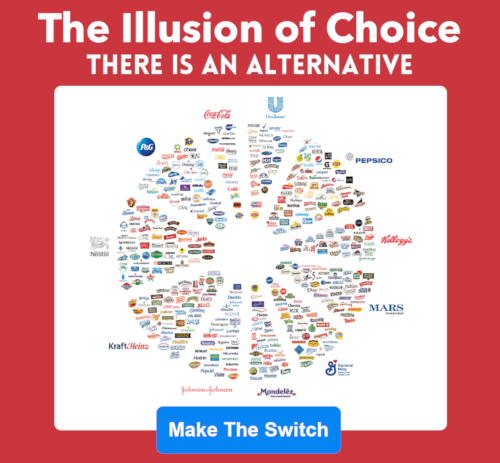- The Canadian government lobbied to expand the EV tax credit in Senate Democrats’ massive climate bill, benefiting Canadian industry while raising taxes on U.S. consumers and stifling global competition.
- Automakers are still dependent on China for refining critical minerals used in EV batteries, an energy-intensive process.
- “The very people who are pushing green transition policies oppose mining, oppose the industrial facilities that process these,” prolonging U.S. dependence on China, Dan Kish, a senior fellow at the Institute for Energy Research, told the Daily Caller News Foundation. They’ve created a problem and now that the problem exists they don’t want to do anything to fix it.”
Senate Democrats’ massive climate bill could benefit Canadian makers of electric vehicles, the latest country to make gains from a bill that hurts U.S. consumers and increases U.S. dependence on China to produce materials required for green energy-fueled products, according to experts.
While the draft legislation of the Democrats’ Inflation Reduction Act only provided a tax credit for American-made vehicles, Canadian officials lobbied lawmakers to expand the provision for an industry that comprises 9% of Canada’s export revenue, according to The Wall Street Journal. Canada and China may benefit more from the Inflation Reduction Act than the American taxpayers it purports to help, as the bill raises taxes, stifles competition and incentivizes a switch to green technologies that require China-made critical minerals to function, experts told the Daily Caller News Foundation.
The Inflation Reduction Act carves out a $7,500 tax credit for purchasing EVs at least 40% sourced in North America. EV production lines traverse U.S. borders, with experts estimating that a vehicle can cross between the U.S., Mexico and Canada up to eight times before final assembly, according to the WSJ.
Canadian Prime Minister Justin Trudeau lobbied for Canada’s inclusion at a 2021 summit with President Joe Biden and Mexican President Andrés Manuel López Obrador, the WSJ reported. “The Americans are very aware of Canada’s position on [the tax credit] and quite frankly the threat it poses to over 50 years of integrated auto-making in our two countries,” he said.
“Aside from China and a few other countries, Americans benefit from a robust international trade system, especially when it comes to vehicles,” Katie Tubb, a research fellow at the Heritage Foundation, told the Daily Caller News Foundation. “The EV tax credit … adds a layer of protectionism” and “blocks out a significant number of options out there for Americans.”
Nevertheless, the Biden administration may relax the rules to include components from China, the world’s largest exporter of rare earth minerals.
Kirsten Hillman, Canada’s ambassador to the U.S., argued Canada can help the U.S. diversify its supply chains for crucial green energy components, since Canada produces most of the critical minerals used in electric battery production, the WSJ reported. Dan Kish, a senior fellow at the Institute for Energy Research, told the DCNF that may be true, but not in the quantities required to meet surging global demand — and most of those minerals go to China for a very energy-intensive refining process, anyway.
China accounted for 60% of global rare earth materials production in 2019, according to a 2021 International Energy Agency report. It has invested heavily in mining projects in the Democratic Republic of the Congo, Myanmar and other developing countries with significant rare earths reserves. (RELATED: How Clean Energy Actually Destroys The Environment And Fuels Abuse)
‘The Little Guys Get Swept Up’: Taxes In Senate Dems’ Climate Bill Threaten Independent Oil, Gas Producershttps://t.co/SZH0UuGEKD
— Daily Caller (@DailyCaller) August 10, 2022
Regardless of where the rare earths are produced, over 90% of them pass through Chinese refineries before they are re-exported to Western buyers for use in EV batteries, solar panels and other green technologies. China burns over half the world’s coal to process polysilicon, a component in solar panels, much of which occurs in forced labor camps in Xinjiang, said Kish.
The U.S. is the world’s second-largest rare earths producer, but climate advocates continue to shut down efforts to install processing facilities in the U.S., said Kish.
“The very people who are pushing green transition policies oppose mining, oppose the industrial facilities that process [critical minerals],” prolonging U.S. dependence on China, said Kish. “They’ve created a problem, and now that the problem exists they don’t want to do anything to fix it.”
The White House and the Canadian government did not respond to the Daily Caller News Foundation’s requests for comment.
Content created by The Daily Caller News Foundation is available without charge to any eligible news publisher that can provide a large audience. For licensing opportunities of our original content, please contact licensing@dailycallernewsfoundation.org.
Content created by The Daily Caller News Foundation is available without charge to any eligible news publisher that can provide a large audience. For licensing opportunities of our original content, please contact licensing@dailycallernewsfoundation.org.
JOIN US @NewRightNetwork on our Telegram, Twitter, Facebook Page and Groups, and other social media for instant news updates!
New Right Network depends on your support as a patriot-ran American news network. Donate now

